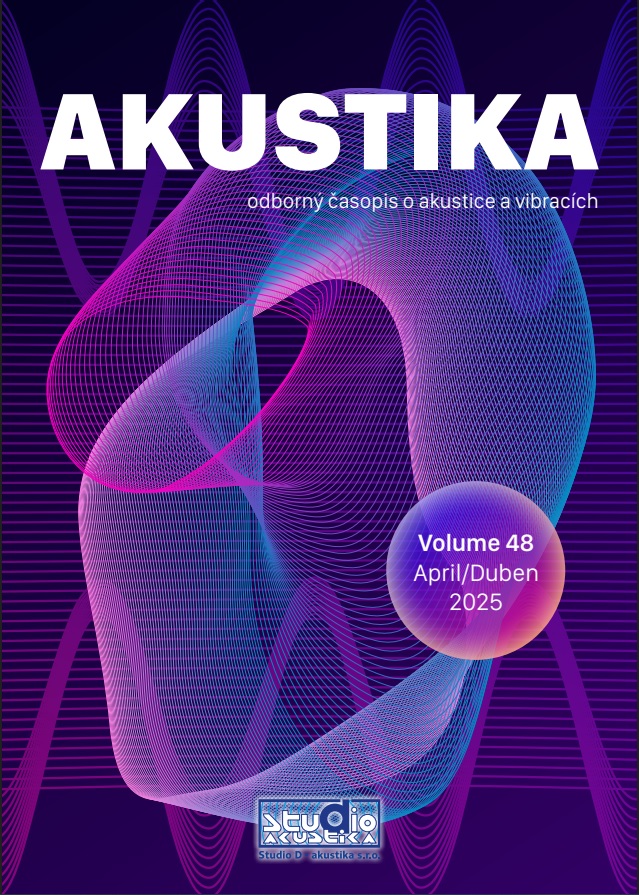Acoustic and thermophysical properties of recycled materials based on newsprint
DOI:
https://doi.org/10.36336/akustika20254874Keywords:
Sound Absorption Coefficient, Noise Reduction Coefficient, thermophysical properties, thermal conductivity coefficientAbstract
The paper deals with the acoustic and thermophysical properties of selected materials created from the recycling of newsprints with potential applications in the structural components of timber buildings. The samples for the study were produced by recycling paper in three forms: as pure paper, then with the addition of used coffee grounds, and then with the addition of rubber from crushed automotive tires. Based on the measurement of the Sound Absorption Coefficient (SAC) and Noise Reduction Coefficient (NRC), it can be concluded that these materials are among the less absorptive in terms of acoustics. The best results were achieved by the material made from newspaper mixed with coffee grounds (NRC is equal to 0.30), which can be classified into sound absorption class D. The other studied materials fall into class E, with an NRC of 0.20. From the perspective of thermophysical properties, the tested materials exhibit thermal conductivity coefficient values ranging from 0.083 to 0.103 W·m⁻¹·K⁻¹, indicating that they do not meet the thermal insulation properties commonly associated with standard insulating materials.

Downloads
Published
Issue
Section
License
Copyright (c) 2025 Rastislav Igaz, Miroslav Němec, Miloš Gejdoš, Samuel Kočuta, Dagmara Bednárová (Author)

This work is licensed under a Creative Commons Attribution-NonCommercial-NoDerivatives 4.0 International License.
Journal Akustika is peer reviewed journal indexed in Scopus database and
Web of Science.

